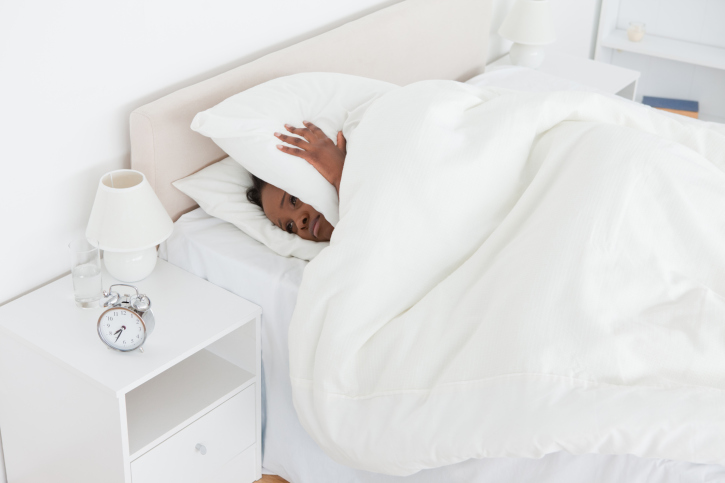
"Sleep tight! Don't let the bed bugs bite!" Remember that? I remember hearing that time and time again as I was tucked into bed as a child. To me, it was nothing but a routine phrase that I would hear nightly. That's all it was - up until a year ago. The phrase became a reality for me when I least expected it - as an adult.
My theory on how I got the bed bugs starts at a friend's house. I hadn't seen her in a while, so I was surprised to see that she didn't clean up for me. Wouldn't you expect an old friend to clean up before you came!? I'm not prude, trust me. But the house looked like she hadn't cleaned in a long time. So reluctantly, I sat down on the couch. Unfortunately, the following night, I woke up to what I would soon discover was a bed bug bite.
The first thing I saw was a slow-moving bed bug "running" across my pillow. I still can't get rid of the image. I had never had bed bugs before, but I had seen plenty of pictures in the past, so I instantly knew I had a problem on my hands. The small red bite itched, a feeling I would soon get used to as I spent all of my nights scratching incessantly. For a month, I slept on the couch downstairs.
What exactly is a bed bug?
Bed bugs have been mentioned in various writing works that date back to 400 B.C. It is believed that bed bugs, Cimex lectularius (scientific name) used to feed on other warm-blooded mammals before humans came into the picture. In the early 1940's, bed bugs were close to being eradicated from all "developed" countries. But due to immunity from pesticides, some bugs were able to survive and reproduce offspring, also immune to the pesticides. Consequently, new pesticides have to be developed on a continual basis.Now, in 2015, bed bugs are still a force to be reckoned with. Orkin, a popular pest control company, released a list of the cities in the United States with the highest volume of bed bug infestations in which, from 2011-2014, Chicago is at the top. Surely Chicago is a contender for first place for 2015 - the year hasn't ended yet.
Bed bugs are parasites that feed on blood only. They are mostly nocturnal, doing their dirt at night while we sleep. How convenient. Bed bugs only grow to be about 4mm-5mm long, making them virtually impossible to spot. But when a bug is full with blood, it swells to a more visible size.
The biggest problem with a bed bug infestation is their rapid reproduction rate. If left untreated, the infestation can grow to 8,000 adults, over 100,000 nymphs and 70,000 eggs after only six months! The bugs cling to your skin, hair, body hair, your clothes and anything else you can think of. This is why they spread so rapidly.
Here are some ways that people can get a bed bug infestation and potentially prevent one:
1. Hotel: Countless bed bug cases involve a hotel. Unfortunately, even some high-scale hotels have been known to give its guests bed bugs via their clothes or luggage. Read reviews online before booking, check your room on arrival and keep your bags and suitcase closed!
2. Used clothing: You can get it from thrift shop clothing or borrowing clothes from someone who has them. To stay on the safe side, dry the clothes first. Next, wash them, and then dry them again.
3. Old books: When you bring old books into your home, you're taking a risk if you don't check every page to make sure there are no bugs.
4. Inviting someone over who may have bed bugs: This is self-explanatory. Be careful who you invite to the place where you lay your head.
5. Random furniture: If you don't know where the furniture came from, don't bring it inside!
Getting rid of bed bugs
Oftentimes, a victim of a bed bug infestation has to go as far as throwing his or her mattress away! In cases that extreme, a professional bed bug crew has to be called to get rid of the problem. They bomb the dwelling with pesticides so strong that they have to wear gas masks to be there and advise the owner to leave the home.
Others try to take initiative on their own which may or may not work. In this case, a person has to go to a place like Walgreens to get bed bug spray and go somewhere to get dust masks and disposable gloves to keep as many chemicals off you as possible. But when someone takes this avenue, they have to be consistent with spraying twice daily for two weeks. That along with bed bug mattress covers, in which the mattress is enclosed in a cover containing chemicals to kill the bugs. Although less expensive than calling in the professionals, this method is still expensive - a high price to pay if inefficient.
Although bed bugs carry numerous pathogens detrimental to human health, there are no reported cases of them passing them to humans. They just don't. At the end of the day, bed bugs are a nuissance that you cannot fully understand until you feel the bites keeping you up at night. They don't hurt, but they itch...all night. The best way to keep these annoying bugs out of your life is prevention.








